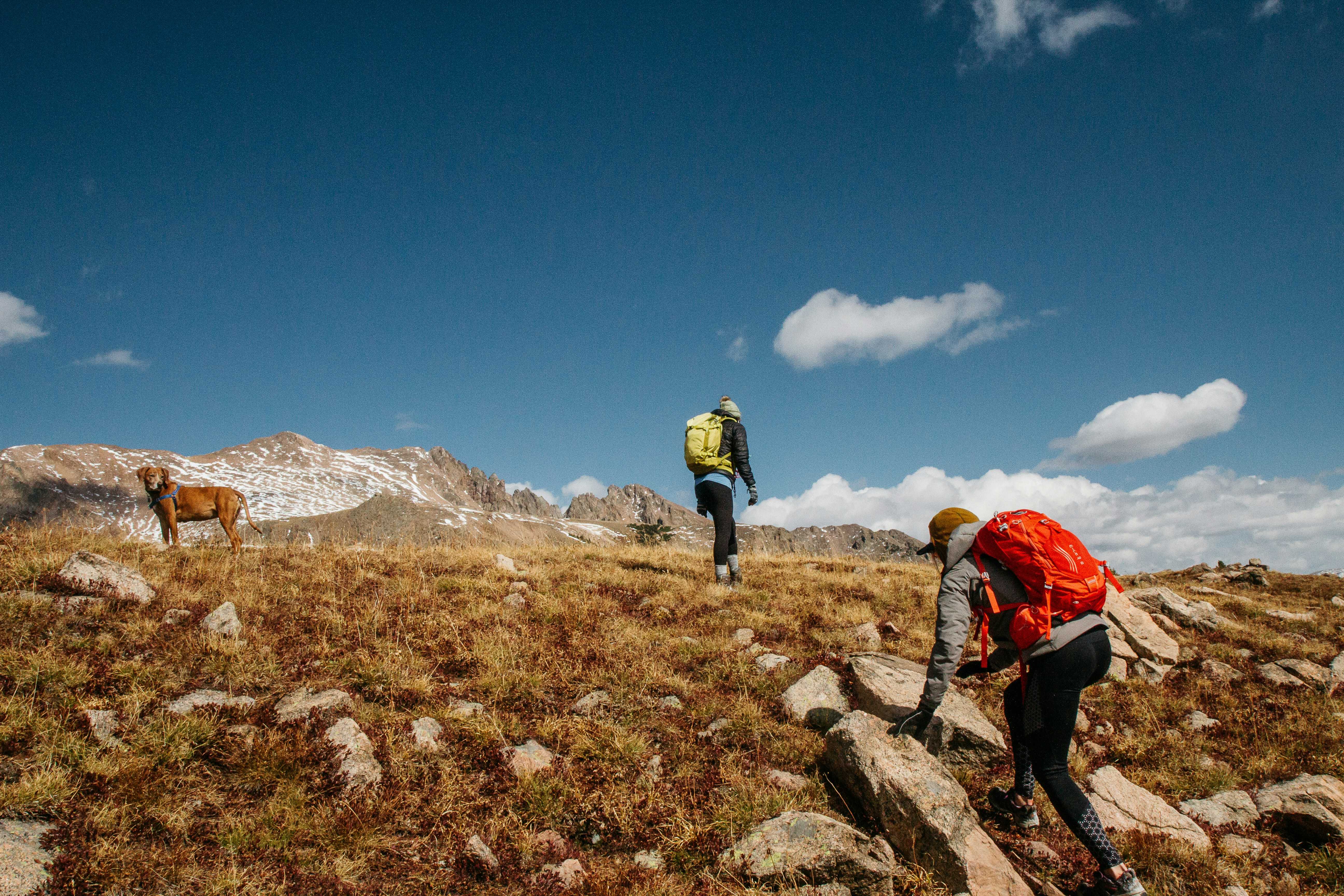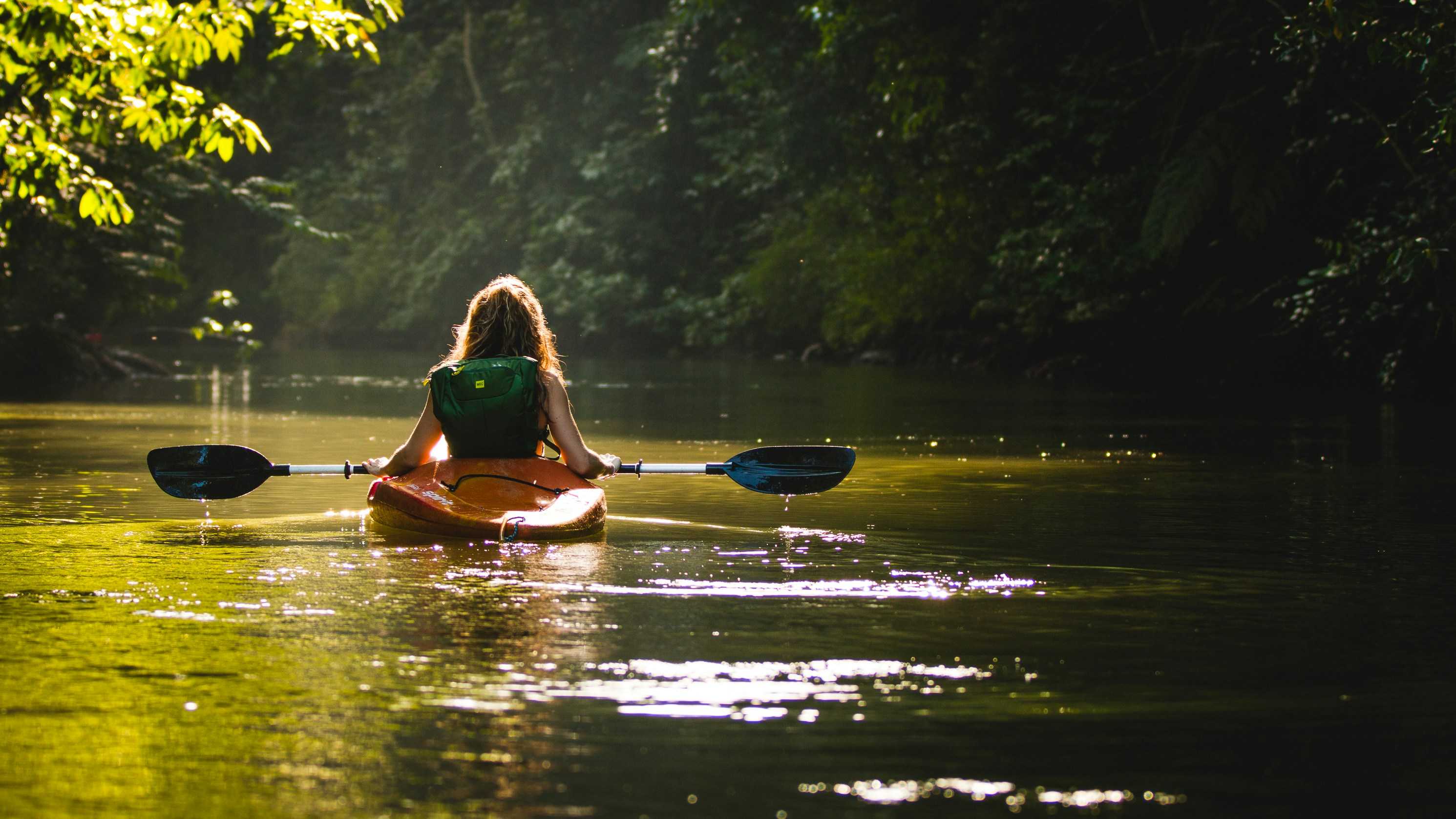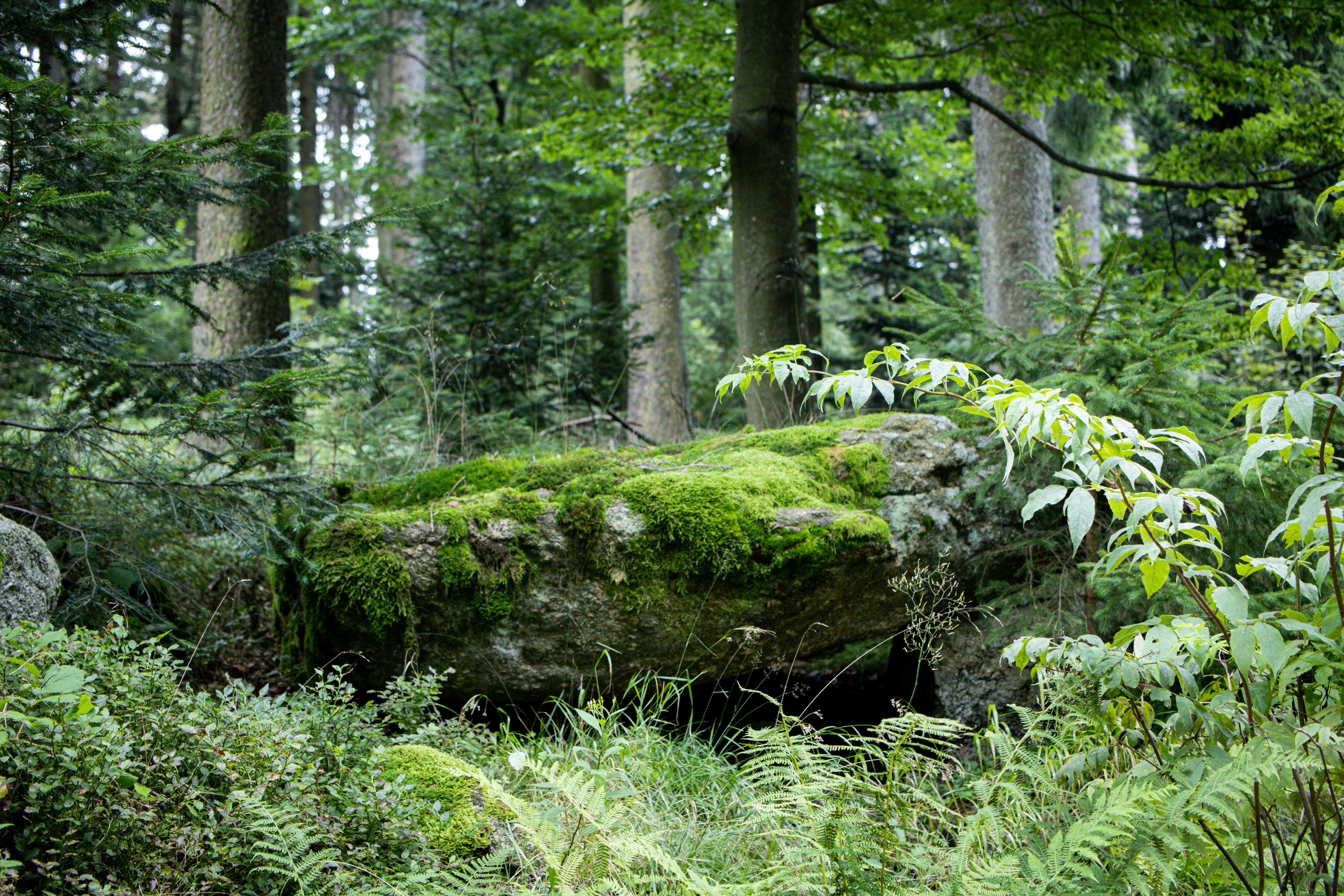Sustainable outdoor activities – make the most of nature on your next trip

Outdoor holidays, such as camping, glamping and caravanning, already have a lower carbon footprint than most other kinds of holidays, so if you’re looking for a way to travel while lowering your environmental impact, you’re already on a good track!
While the type of accommodation you book, and your mode of transport getting to and from your destination, are likely to have the biggest impact on your overall carbon footprint of your holiday, it's also worth thinking about how you spend your time while on holiday – some activities will have a higher impact than others.
The good news is that if you’re planning to spend time soaking up nature, there are plenty of ways to make the most of your surroundings while minimising your impact on the environment, and in some cases protecting nature too. And, as we know, unplugging and spending time in the natural environment can have a huge benefit for our mental and physical health.
What are the benefits of spending time in nature?
According to the Mental Health Foundation, spending time in nature helps to generate positive emotions including joy, calmness and creativity, and also facilitates concentration. It can also help to reduce the symptoms of poor mental health, particularly depression and anxiety.
Nature can have a significant positive impact on our physical health too, with the University of California - Davis Health reporting that spending time outdoors can help to reduce levels of cortisol (the stress hormone), improve cardiovascular health, reduce muscle tension, increase physical activity levels and improve levels of vitamin D (which contributes to healthy bones, blood cells and immunity). Having daily exposure to natural light can also help create and maintain regular sleep cycles.
What are some of the impacts of tourism on the environment?
It's great that spending so much time outdoors can boost our health, but while we relax and enjoy ourselves on holiday we may not always consider the impact our actions have on the natural environment.
In busy areas, lots of tourists can place additional pressure on local resources, which can lead to issues such as water or power shortages, congestion, pollution and more. We must remember that our holiday destinations are also people’s homes and try to act in a responsible way as visitors.
Additional waste and litter generated can damage local environments, and wayward tourists straying from dedicated public footpaths causes damage to local wildlife habitats and landscapes. While tourism brings economic benefits to communities, the quality of life for local people can also be impacted by issues like overtourism.
Three low-impact holiday activities
When planning days out for your next holiday, check out our tips here on how you can reduce the impact of some of your favourite activities.
Responsible Hiking

Walking and hiking are great for the mind and body, and in the UK we are fortunate to have many beautiful landscapes to traverse! Below are our top tips for responsible hiking.
-
Stick to the designated paths: Protect fragile local ecosystems and wildlife habitats by always walking on dedicated public footpaths and bridleways. While it may be tempting to take a quick short cut or a more direct route, this can impact local wildlife and, over time, lead to erosion and visible landscape damage. In popular locations where there may be lots of walkers, stepping off the path can eventually cause paths to widen, damaging the local land further. There are lots of conservation efforts underway to help minimise the impacts of this, but you can do your part by simply sticking to the footpath and walking in single file.
-
Be mindful of wildlife during different seasons and keep your distance. For example, look out for lambs and calves in the springtime, and ground nesting birds from March to July.
-
Look but don’t touch
-
When hiking around livestock, remeber not to get too close, don’t come between a mother and her young, close all gates behind you, and don't feed the wildlife
-
It's tempting to pick beautiful wildflowers but this can cause damage to both flora and fauna and remove habitats for important species like bees
-
Monuments and rocks are there to be admired, but don’t take them home as souvenirs! Resist the temptation to build towers, as these can cause more problems for the local environment. Leave rocks where they are so insects and other small beasts have shelter, and for more people to enjoy
-
When foraging, be mindful to take only what you need; this will leave plenty for others and also minimise any damage to the plants
-
Keep your dog on a lead for the safety of yourself, your dog and animals including ground-nesting birds. Be especially vigilant on coastal paths, and when passing by wild animals or livestock with young babies
-
Leave no trace – if you brought it with you, take it with you!
-
Take all your litter – including apple cores, banana peels and anything else; they may seem natural but they can disrupt local ecosystems and present risks to any animals who may eat them
-
Pick up litter if you find it – not just your own
-
Be prepared
- Weather conditions can change quickly, so be prepared with the correct kit and plenty of layers to keep you warm in winds and rain
- Bring all the kit, food and water you might need – don't rely on there being places to buy items
- Always bring a map and torch in case your GPS fails or you are out longer than anticipated
- Let someone know your route and your estimated time of arrival at your destination
- Try to avoid putting yourself in dangerous situations that put pressure on local emergency services and mountain rescue teams
Responsible Kayaking / Canoeing

Kayaks and canoes are powered by human energy, which makes them inherently low impact because of their low emissions and minimal carbon footprint! However, water-based activities can still have an impact on the aquatic environment and ecosystems so we should be mindful when we take part in these activities.
Below are eight tips to help you on your way to being a sustainable kayaking or canoeing pro:
- Try before you buy: If you’re new to the sport and you’re not sure if it’s for you, rent a kayak before investing in your own. A taster session will help you to decide whether this activity is for you, thereby reducing consumption and waste through buying a kit you’ll never use if it turns out it’s not your thing!
-
Buy sustainably: If you are going to buy equipment, choose items made from sustainable or recycled materials – or, better still, buy second hand.
-
Respect: Try to limit damage to flora and fauna by paddling gently and carefully.
- Keep your distance: As with walking and hiking, try not to get too close to aquatic animals and instead admire them from a distance. Try to keep the noise down to avoid disturbing any animals as they go about their day.
- Leave no trace: Take your rubbish with you when you leave, and pick up any litter you see.
-
Barbecue carefully: Some areas have strict no-barbecuing rules to help prevent wildfires. Always check before you light yours, and be respectful of local guidelines.
-
Choose your suncream wisely: Chemicals in sunscreen can upset the PH balance of water, and cause toxic effects for plants and animals. Research sustainable and ocean-safe sunscreens to ensure minimal impact on these fragile environments.
-
Plan your route: Avoid ecologically sensitive areas and overtouristed places when out on the water – this will also help you to have a more peaceful experience without too many other people around. Where possible, try to follow established routes and stick to official routes to avoid damaging fragile river or lake environments.
Nature bathing and forest bathing

Forest or nature bathing is based on the Japanese practice of relaxation known as shinrin yoku, meaning to immerse oneself in nature – usually a forest or somewhere where you are surrounded by trees. The practice aims to improve both physical and mental wellbeing.
The key aspects of forest bathing include:
- Immersion in nature: Walking slowly through the forest or woodland, and paying attention to your surroundings
- Sensory engagement: Focusing your mind on the present moment; this can be helped by noticing the sites, sounds, smells, textures and tastes of the forest
- Mindfulness: Focusing on your breathing, taking deep breaths and staying present in the moment
The benefits of forest or nature bathing with regular practice include reduced stress and improved mental clarity, lowered blood pressure and improved immune function.
Forest bathing tips for beginners
According to the Forestry Commission, those new to forest or nature bathing should:
-
Slow down and allow yourself plenty of time. Move through the forest slowly so you can see and feel more
-
Turn off your devices to ensure you can fully relax and won’t be disturbed
-
Take long, deep breaths into your abdomen, exhaling slowly
-
Acknowledge your surroundings, asking yourself what you can see, hear, smell and feel
-
Keep your eyes open: studies have shown that seeing the colours of nature, especially blues and greens, can help us relax
-
Stay as long as you want, slowly building up to the recommended two hours for a complete nature bathing experience
In the UK, the Forestry Commission offers guided forest bathing sessions for beginners. Why not give it a try on your next trip?
Other sustainble activities: Giving back
Another way to reap the benefits of nature, while ensuring we protect the environment for generations to come, is to volunteer. This could involve joining a local charity fundraising or volunteering event during your trip, or it could also be an activity you add to your holiday activities as you go!
Heading to the beach? Why not challenge yourself to see how much plastic you can pick up in 30 minutes? You’ll be surprised how much you can collect in such a short space of time. This is a great activity to get children involved in too.
Hiking in the hills? Take a spare bag with you and collect any litter as you see it. Help to preserve the beautiful landscapes and protect local habitats and wildlife.
Other ways to give back to local communities:
-
Use the recycling facilities on your campsite and minimise your water and energy use to help prevent waste
-
Buy local produce from on-site shops or local farmers' markets (the tastiest way to be sustainable!)
-
Support local businesses more broadly, whether that’s buying locally made souvenirs, booking activities hosted by local people or small companies, or grabbing a bite or coffee from an independent business
Book your stay
Hopefully this article has inspired you to see how easy it is to travel sustainably, by simply being aware of your surroundings, nature and animals, taking with you anything that you bring, and supporting local businesses. Keep these tips in mind when searching for your next trip!